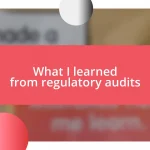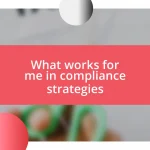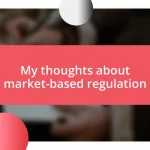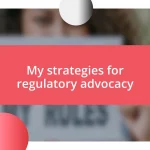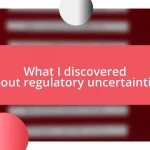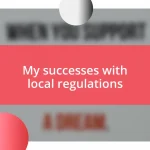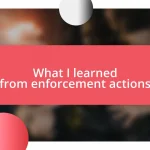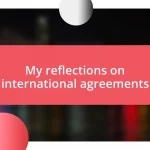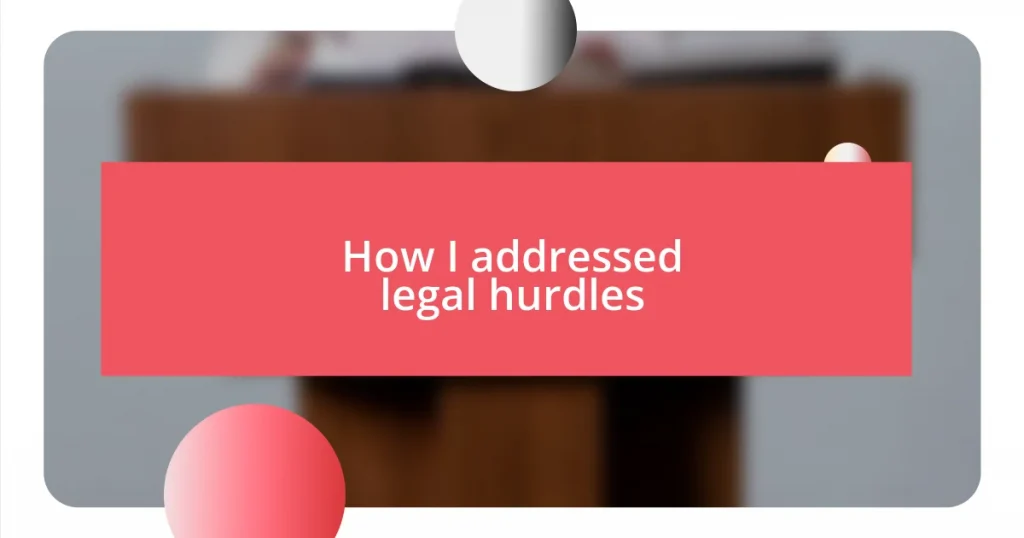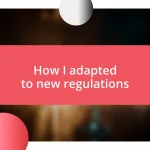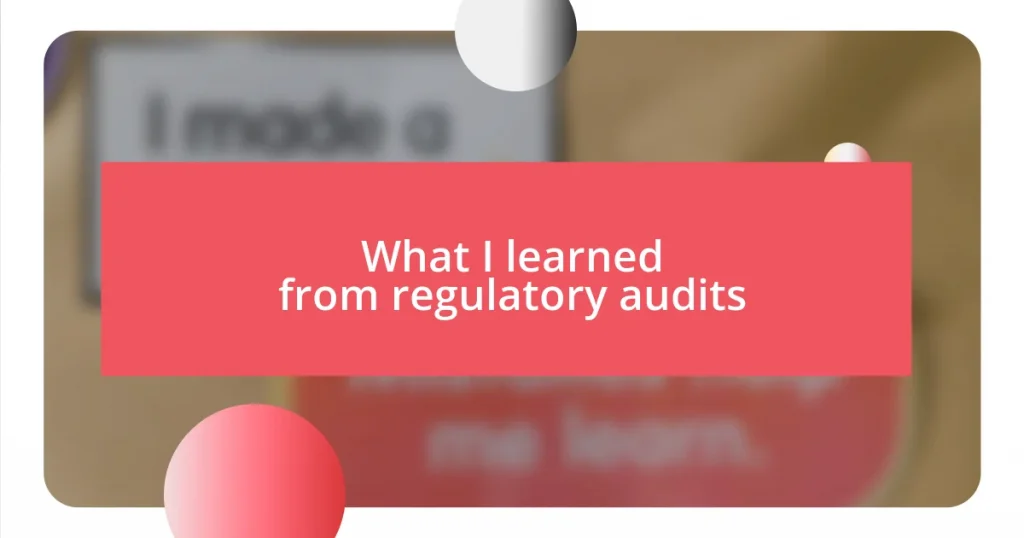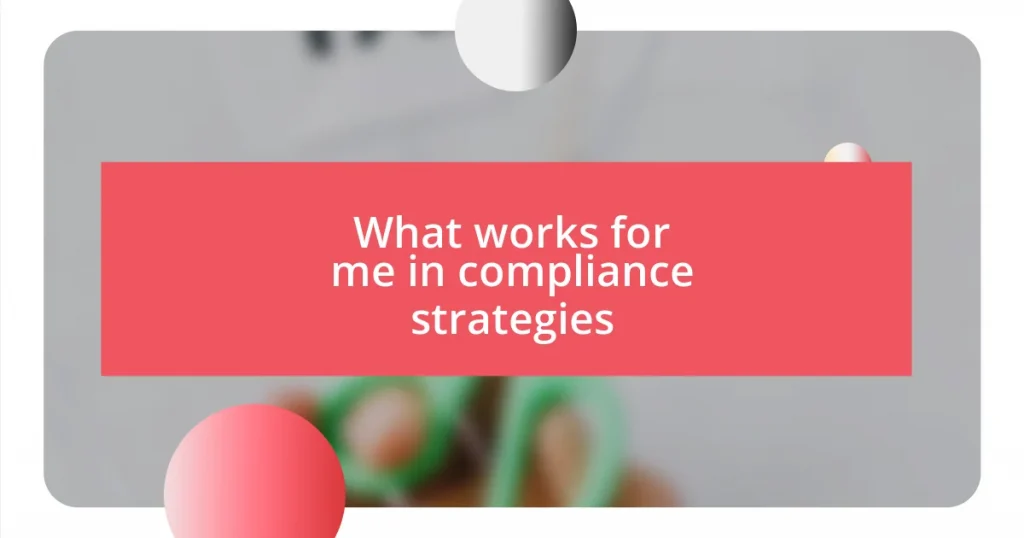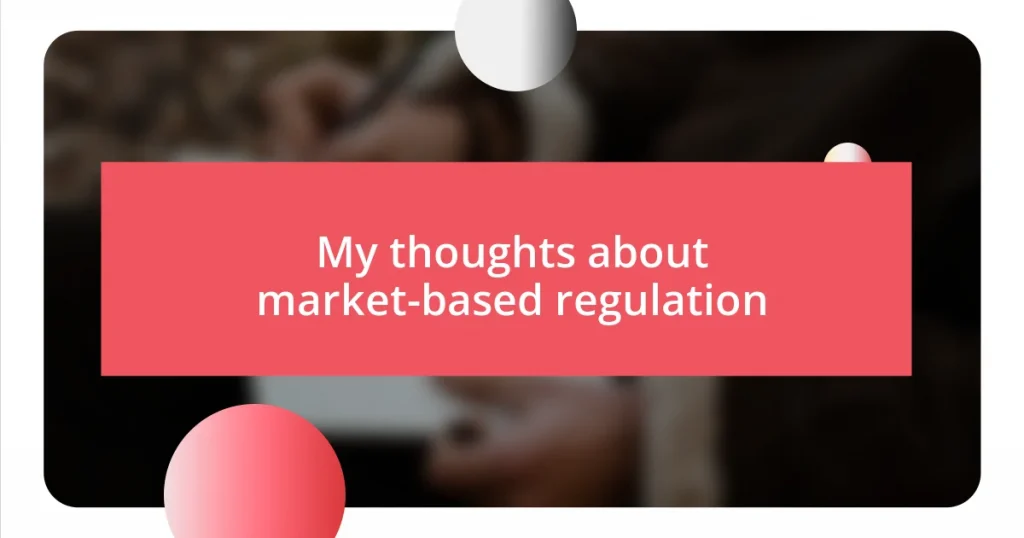Key takeaways:
- Understanding legal hurdles requires persistence, knowledge of relevant laws, and effective documentation to navigate and overcome obstacles confidently.
- Engaging with legal professionals for clarity and establishing a collaborative relationship can empower individuals to make informed decisions regarding legal issues.
- Implementing preventive measures, such as thorough contract reviews and team training, can significantly mitigate future legal challenges and foster a culture of compliance.
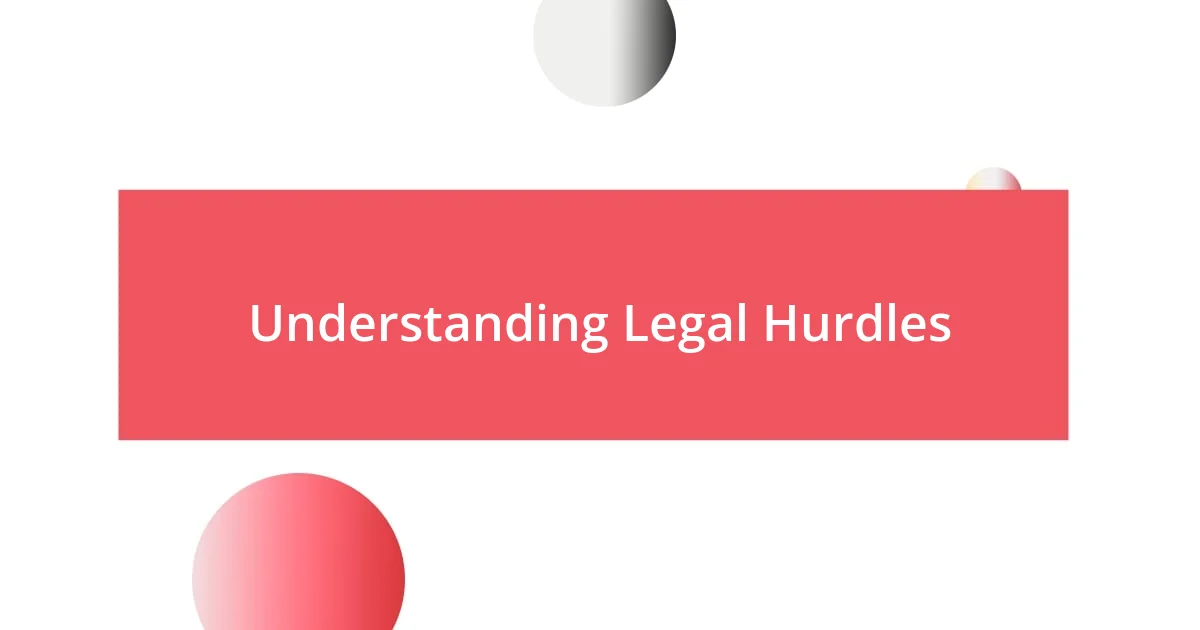
Understanding Legal Hurdles
Understanding legal hurdles can often feel like navigating a labyrinth. I remember when I first faced complex regulations while starting my business; it was overwhelming. Suddenly, all my excitement turned into anxiety over compliance and documentation—why is it that something so important can feel so insurmountable?
Legal hurdles aren’t just red tape; they can evoke feelings of frustration and confusion. I once spent hours poring over legal jargon that felt alien to me. Have you ever come across a contract that seemed to speak another language? It’s not unusual to feel lost. Knowing what to look for and how to interpret it can save you both time and stress.
Moreover, understanding the landscape of legal hurdles often requires real persistence. After facing rejection due to a zoning issue, I learned how crucial it is to gather information and seek professional advice. It’s not just about overcoming obstacles; it’s about learning how to navigate them so that they become stepping stones, rather than roadblocks.
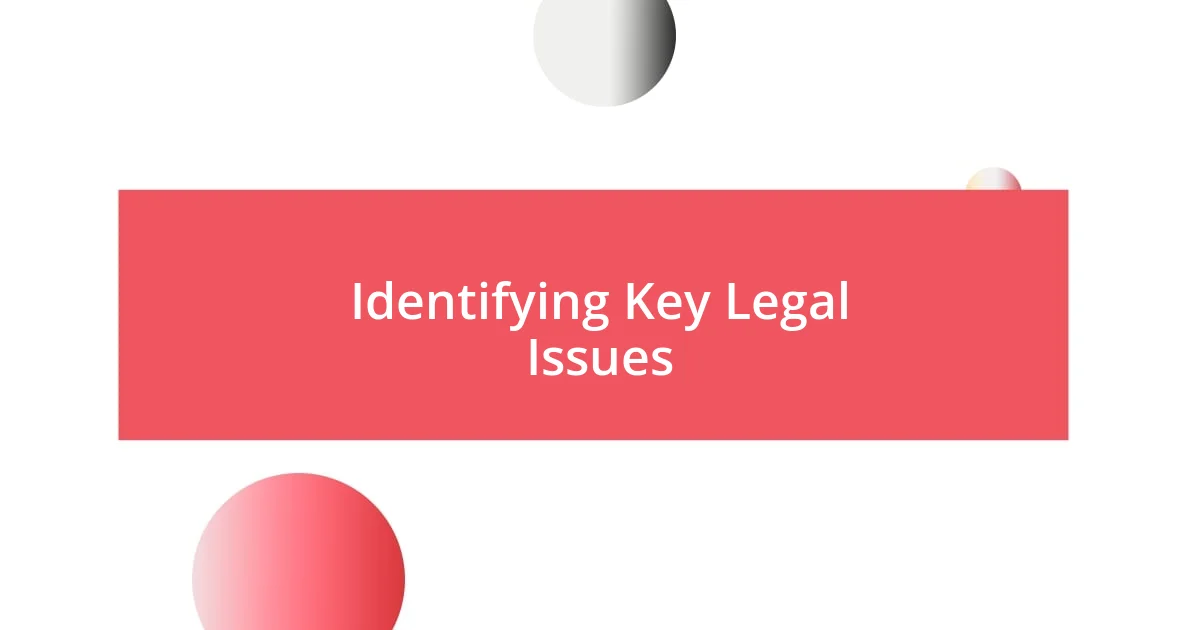
Identifying Key Legal Issues
Identifying key legal issues can feel like searching for a needle in a haystack. When I first tackled a trademark dispute, pinpointing the relevant laws was daunting. It involved sifting through endless documentation and consulting with legal experts, which sometimes felt like deciphering a secret code. But, identifying crucial issues early on made all the difference in crafting a solid strategy.
Here are some essential aspects to consider when identifying legal issues:
- Relevant Laws and Regulations: Familiarize yourself with rules that apply to your situation.
- Potential Risks: Assess what could go wrong. I didn’t realize the full scope of potential liabilities until it was almost too late.
- Stakeholder Interests: Understand the motivations of all parties involved; sometimes, conflicts arise from differing priorities.
- Previous Cases: Research similar situations to see how they were handled.
- Legal Documentation: Keep an eye on contracts and agreements. They can hold the key to many issues if read carefully.
By focusing on these areas, you’ll be better equipped to tackle the complexities of legal hurdles head-on.
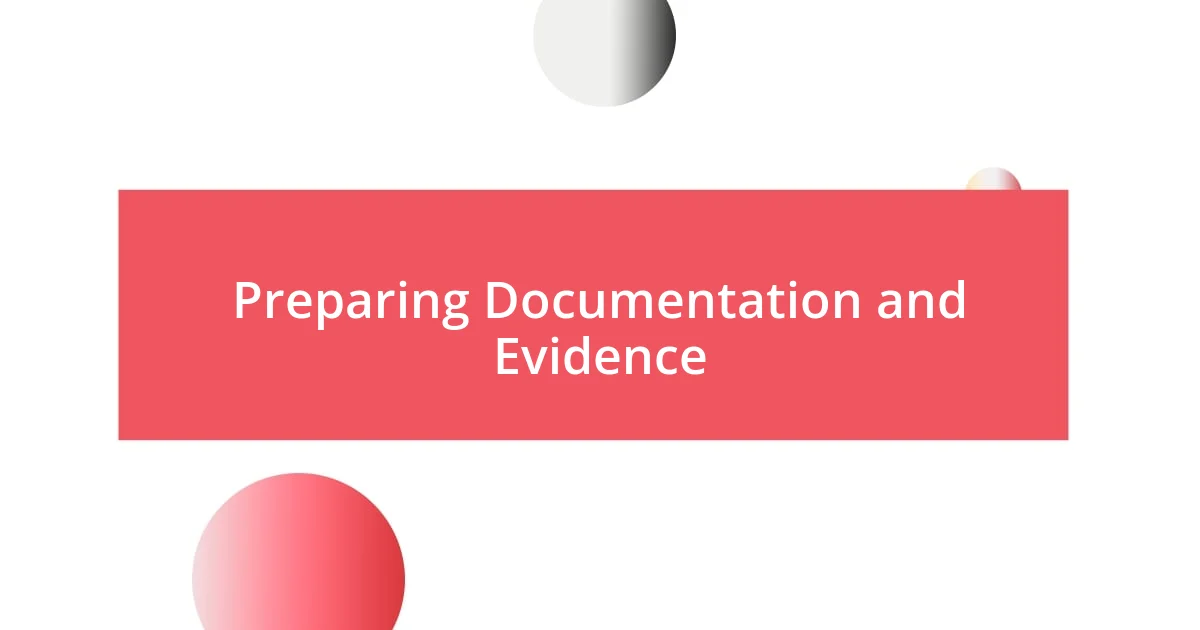
Preparing Documentation and Evidence
Preparing documentation and evidence is another essential step in overcoming legal hurdles. It might seem tedious, but believe me, having the right paperwork can make or break your case. During my experience with a contract negotiation, I remember frantically gathering emails, meeting notes, and signed agreements—it felt like piecing together a puzzle. I couldn’t shake off the anxiety wondering if I’d overlooked something crucial. I realized that meticulous documentation not only strengthens your position but also provides peace of mind.
When I faced a compliance challenge, the sheer volume of required documents was daunting. I started by creating a checklist that outlined each necessary piece of evidence, from business licenses to financial statements. By organizing everything methodically, I was able to avoid that overwhelming feeling that often accompanies such tasks. It’s intriguing how a little bit of structure can turn chaos into clarity, don’t you think? The confidence gained from being well-prepared is immeasurable.
Gathering documentation isn’t just busywork; it holds immense power. I once observed firsthand how a well-prepared case could sway decisions in my favor. It reminded me of the phrase “the devil is in the details.” Having everything ready allowed me to articulate my position clearly and assertively during discussions. It often feels like you’re giving yourself an upper hand in a game where the rules keep changing. Isn’t it exhilarating to feel a sense of control amidst uncertainty?
| Document Type | Importance |
|---|---|
| Contracts | Outline obligations and rights, serving as primary evidence. |
| Emails/Communications | Show intent and understanding between parties. |
| Licenses/Permits | Demonstrate compliance with regulatory requirements. |
| Financial Statements | Provide a transparent view of your business operations. |
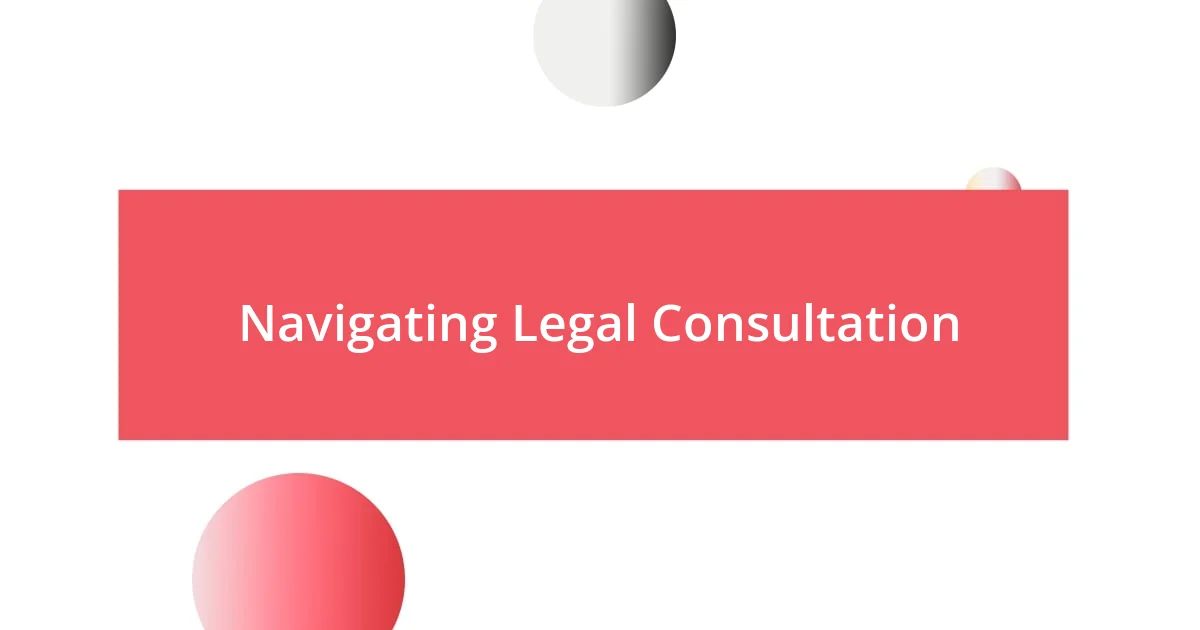
Navigating Legal Consultation
Navigating legal consultation often requires you to balance your instincts with the expertise of professionals. When I first sought legal advice, it felt as if I was entering a world filled with buzzwords and technical jargon. I remember feeling overwhelmed as my lawyer explained concepts like “intellectual property” and “due diligence.” It was during those early meetings that I realized the importance of asking questions, no matter how basic they might seem—after all, clarity leads to empowerment, doesn’t it?
In my experience, a good legal consultant goes beyond simply providing answers; they help you see the bigger picture. I vividly recall an instance when my attorney took the time to explain not just the laws applicable to my case but also the long-term implications of potential decisions. That session transformed my perspective. I realized that understanding the broader context could help me make more informed choices, turning what felt like a daunting process into a collaborative journey.
Finally, establishing a rapport with legal counsel is critical. I think back to a particularly challenging situation when my lawyer actively asked for my input before drafting the strategy. That collaborative approach made me feel valued and involved, which is essential when you’re dealing with something as high-stakes as legal hurdles. Have you ever wondered how much your mindset can impact the outcome? I believe that fostering open communication not only alleviates stress but also builds trust, leading to a more effective legal partnership.
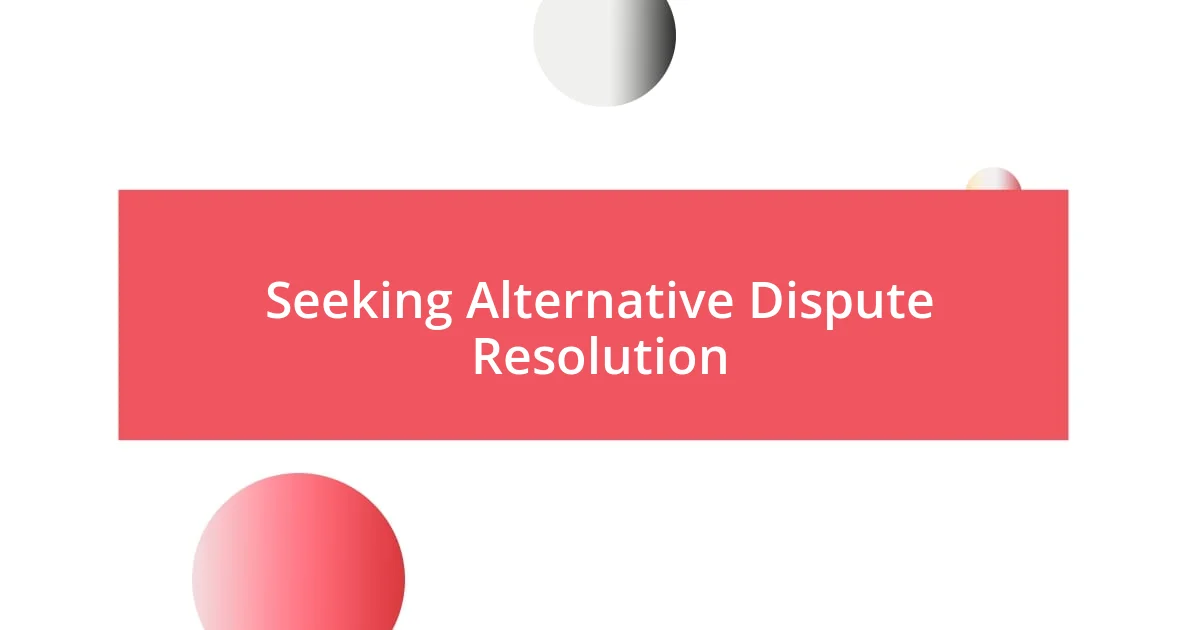
Seeking Alternative Dispute Resolution
Seeking Alternative Dispute Resolution can be a game changer when faced with legal hurdles. I remember a time when a contractual disagreement loomed over my business, and litigation felt like a mountain I simply couldn’t climb. Instead, I explored mediation—an approach that not only facilitated open dialogue but also fostered a sense of collaboration between the parties involved. It’s remarkable how taking a step back and seeking mutual understanding can defuse tension, don’t you think?
One experience stands out vividly: the mediator we hired was a former attorney who had navigated these waters many times before. Their ability to guide the conversation allowed both sides to air grievances in a controlled environment, something that court often lacks. Rather than feeling like adversaries, we became co-creators of a solution. This eye-opening experience made me realize that the adversarial nature of traditional litigation often blinds us to more amicable resolutions.
Reflecting on these moments makes me appreciate the value of exploring options beyond the courtroom. I’ve often asked myself, why do we default to litigation when alternatives can save us time, money, and emotional strain? In my case, choosing this path allowed us to reach a satisfactory resolution more quickly, turning a potential quagmire into a manageable conversation. Adopting a mindset open to alternative dispute resolution truly transformed my approach to conflict. Isn’t it liberating to think there’s more than one route forward?
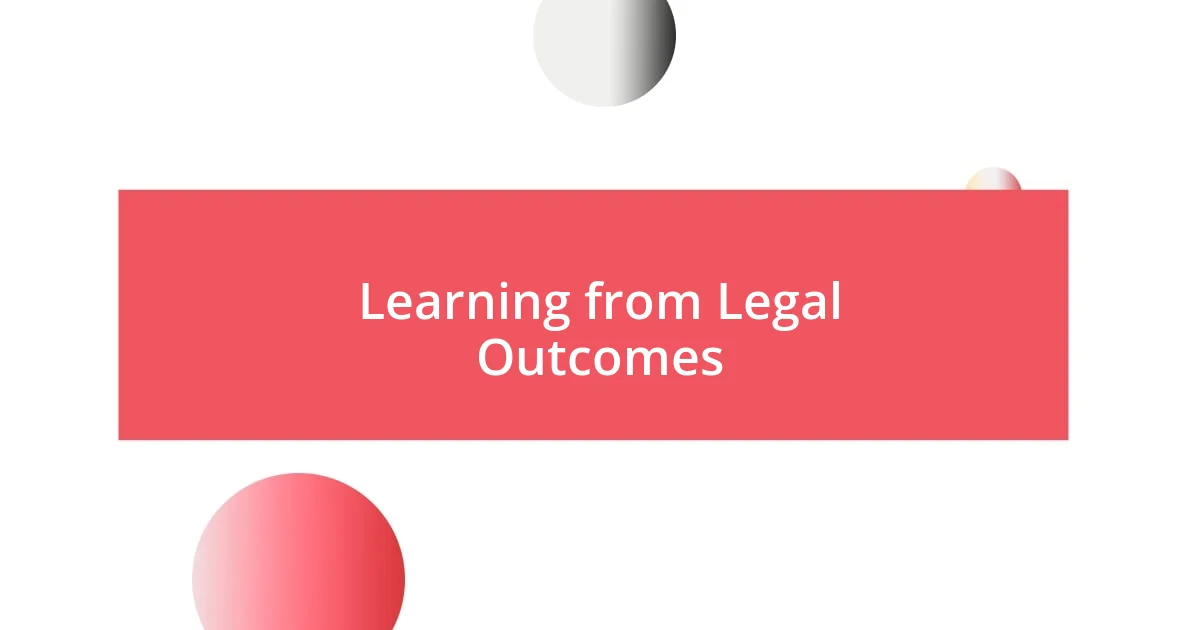
Learning from Legal Outcomes
Learning from legal outcomes is about extracting valuable lessons that shape future decisions. I recall a challenging encounter with a lawsuit that initially left me feeling defeated. However, as the case progressed, I began to see the nuances of the judicial process and the reasoning behind various rulings. That experience taught me that even unfavorable outcomes can serve as a rich source of insight, pushing me to improve my approach next time.
Through this lens of reflection, I’ve realized that every legal outcome—whether positive or negative—can illuminate areas for personal growth. After my case wrapped up, I took the time to analyze what could have been done differently. Did I communicate my needs effectively? Were there red flags I ignored? Embracing this mentality has not only enhanced my legal acumen but has also bolstered my confidence in tackling future challenges.
Most importantly, I learned that outcomes are not the end of the road but rather a stepping stone to deeper understanding. I remember feeling embarrassed when I realized I had overlooked critical details that could have altered my argument. Now, each legal encounter prompts me to adopt a mindset of curiosity and resilience. Isn’t it interesting how a single experience can reshape your entire perspective? By viewing legal outcomes as learning opportunities, I’ve discovered a sustainable way to navigate the intricate landscape of the legal system.
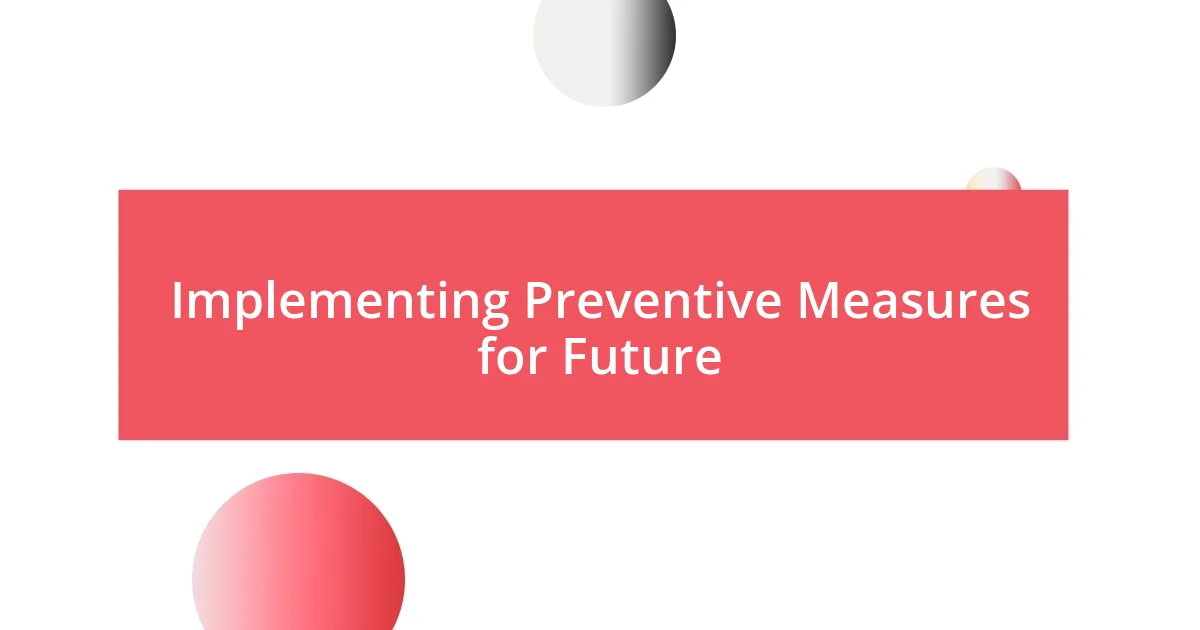
Implementing Preventive Measures for Future
Implementing preventive measures can significantly reduce future legal challenges. I once implemented a thorough contract review process after experiencing a dispute that hinged on vague terms. By collaborating with a legal professional to clarify language, I experienced firsthand how specificity can be a shield against misinterpretation. Have you considered how the details in your agreements might impact your operations?
In an effort to create a culture of compliance, I decided to develop training sessions for my team on legal best practices. I remember the nervous energy in the room as we discussed potential pitfalls in our operations. These sessions not only educated my colleagues but also fostered a sense of vigilance, encouraging everyone to think critically about their roles. Isn’t it fascinating how empowering your team with knowledge can transform their perspective on legal matters?
Additionally, I now conduct regular audits of our business practices to identify areas of potential risk. After initially feeling overwhelmed by the idea, I discovered that these audits serve as proactive stepping stones rather than daunting tasks. I often ask myself, what could’ve been avoided with a simple check-in? This approach has turned into a valuable routine, reinforcing my belief that preventive measures are indeed the best remedy. Isn’t it reassuring to know that taking small, proactive steps can pave the way for a smoother path ahead?
